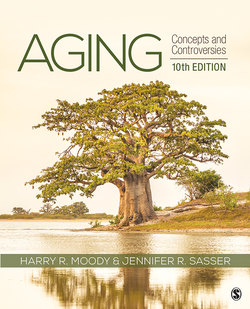Читать книгу Aging - Harry R. Moody - Страница 35
На сайте Литреса книга снята с продажи.
Aging and Psychological Functioning
ОглавлениеResearch continues into ways to forestall physical aging in the hopes that someday we will discover a way to stay young as long as we live. The crusade against senescence and death is particularly appealing to Americans, who idealize success and are enamored with youth. The sentiments “You’re only as old as you think you are!” and “Age is just a number!” express an optimistic outlook that fits well with our can-do attitude toward life. According to this optimistic picture of later life, both physical and psychological decline can be offset by vigorous exercise and engagement with the world. “Use it or lose it!” seems to be the motto here, a philosophy that has been applied to everything from “sex after 60” to lifelong learning.
No wonder that the strategy called “successful aging” has become the goal of many gerontologists. In part, they wish to reject age-based stereotypes, and in part, they wish to counter the assumption that aging means a rapid decline into frailty and senility (Rowe & Kahn, 1997). They are certainly right to reject such stereotypes. But the idea of successful aging should never be based on denial of real losses in functioning in the last stage of life. The importance of the idea of successful aging is that it encourages older people to optimize the capacities that remain while compensating for inevitable losses (Baltes & Baltes, 1990). The measure of successful aging is life satisfaction and a sense of well-being in the face of decline. Successful aging therefore involves the psychological side of aging, including self-concept, social relationships, social roles, and cognitive processes (Friedman & Ryff, 2012).
